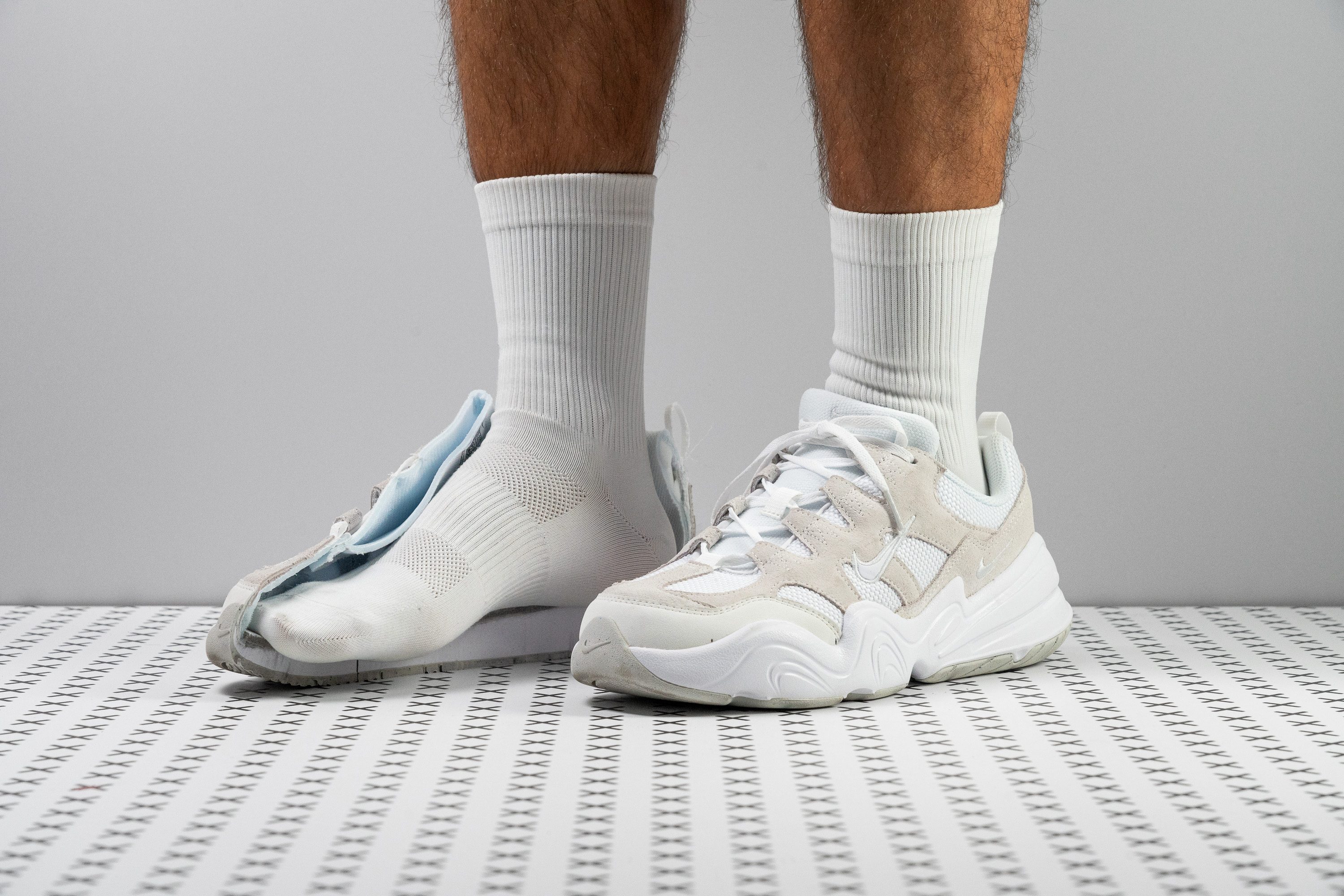Our verdict
Pros
- Top-noth design with authentic suede
- Really durable upper materials
- Super comfortable underfoot
- Pretty supportive and stable
- Height booster
- Incredibly stylish
- Trendy chunky aesthetics
- Compliment magnet
Cons
- Requires a break-in period
- Outsole lacks durability
- Not the best for all day wear
Audience verdict
Comparison
The most similar sneakers compared
+ + Add a shoe | |||||
|---|---|---|---|---|---|
| Audience score | 88 Good! | 92 Great! | 89 Good! | 95 Superb! | |
| Price | $160 | $110 | $145 | $100 | |
| Style | SportyWedgeChunky | SportyFuturisticChunky | ClassicDadRetroSporty | DadRetroSporty | |
| Shock absorption | - | - | High | High | |
| Energy return | - | - | Moderate | Moderate | |
| Traction | - | - | High | High | |
| Breathability | Warm | Warm | Warm | Warm | |
| Weight lab | 13.4 oz / 381g | 11.9 oz / 336g | 13.5 oz / 383g | 12.9 oz / 366g | |
| Size | Slightly small | Slightly small | True to size | True to size | |
| Midsole softness | Balanced | Balanced | Firm | Soft | |
| Material | SuedeTextile | - | MeshSuede | LeatherMesh | |
| Season | Winter | Winter | SpringFall | SpringFall | |
| Inspired from | Running | Running | Running | Running | |
| Width / fit | Wide | Medium | Medium | Medium | |
| Toebox width | Medium | Medium | Medium | Medium | |
| Leather/suede quality | Real suede | Real suede | Real suede | Real leather | |
| Toebox durability | Good | Good | Decent | Decent | |
| Heel padding durability | Bad | Good | Decent | Decent | |
| Outsole durability | Bad | Good | Good | Good | |
| Heel stack lab | 35.8 mm | 29.9 mm | 35.4 mm | 32.3 mm | |
| Stiffness | Stiff | Stiff | Stiff | Moderate | |
| Tongue padding | Thin | Average | Average | Average | |
| Drop lab | 11.1 mm | 10.5 mm | 11.1 mm | 10.0 mm | |
| Forefoot | 24.7 mm | 19.4 mm | 24.3 mm | 22.3 mm | |
| Removable insole | ✓ | ✓ | ✓ | ✓ | |
| Heel tab | Finger loop | Extended heel collar | None | None | |
| Torsional rigidity | Stiff | Stiff | Moderate | Moderate | |
| Heel counter stiffness | Moderate | Flexible | Moderate | Moderate | |
| Sustainable | ✗ | ✓ | ✗ | ✗ | |
| Reflective elements | ✗ | ✗ | ✓ | ✗ | |
| Closure | Laces | Laces | Laces | Laces | |
| Top | Low top | Low top | Low top | Low top | |
| Ranking | #103 Bottom 14% | #32 Top 27% | #84 Bottom 30% | #6 Top 5% | |
| Popularity | #105 Bottom 13% | #107 Bottom 11% | #9 Top 8% | #3 Top 3% |
Who should buy
Don't let the Nike Tech Hera stay forever on the Olympus of your wish list if:
- You don't settle for anything else but the best regarding design (durable, high-quality and authentic suede).
- You're looking for a comfortable shoe underfoot that boosts your height.
- You want something supportive and stable, but anything that's not a looker is a no-no.
- You're loving the chunky aesthetics trend.
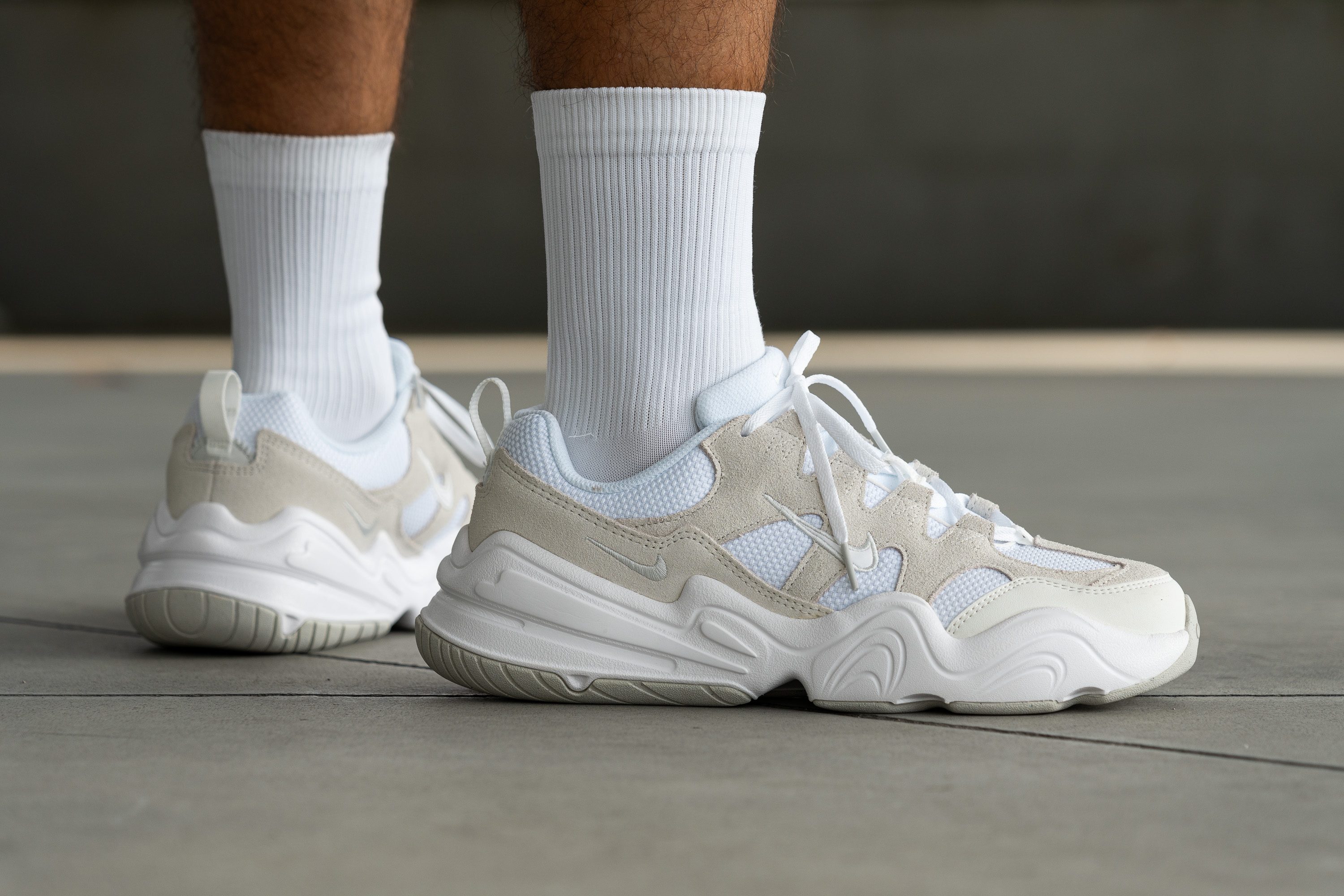
Who should NOT buy
If you want a pair of sneakers to wear all day, every day... forget about the Tech Hera. Its outsole lacks durability, and it doesn't have the best design for hours of use (its upper materials are neither stretchy nor breathable). We believe the Nike Zoom Vomero 5 is a great alternative, and it also has similar aesthetics.
If you're looking for something cheaper that's comfortable from the very first minute you put it on, the Nike V2K Run or the Nike P-6000 might also be a couple of nice choices.
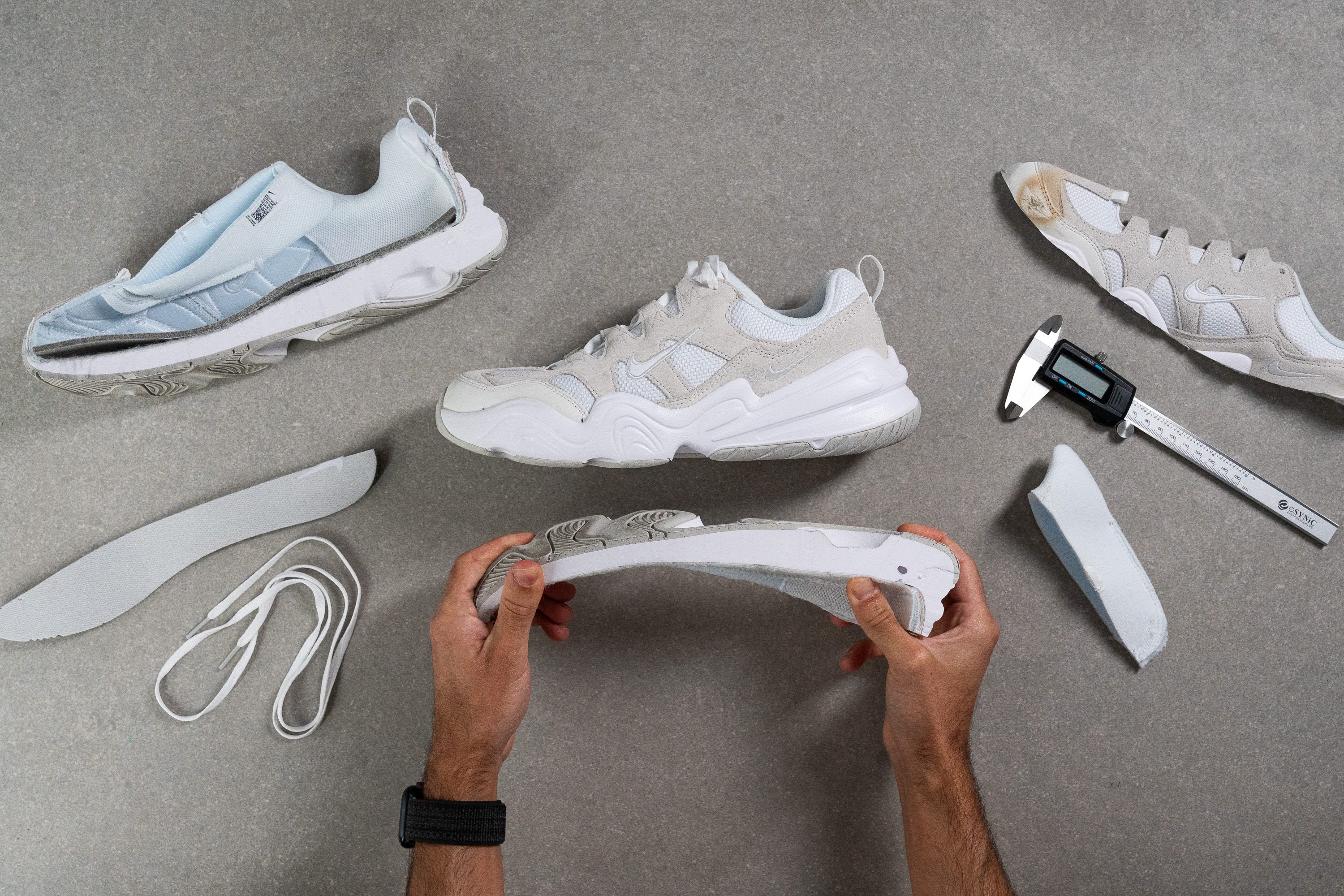
Cushioning
Heel stack
At 35.8 mm, the Tech Hera's heel stack is fairly higher than average. This means your feet will be shielded and separated from the ground, as this Nike falls into the maximalist category of sneakers, which are really trendy nowadays.
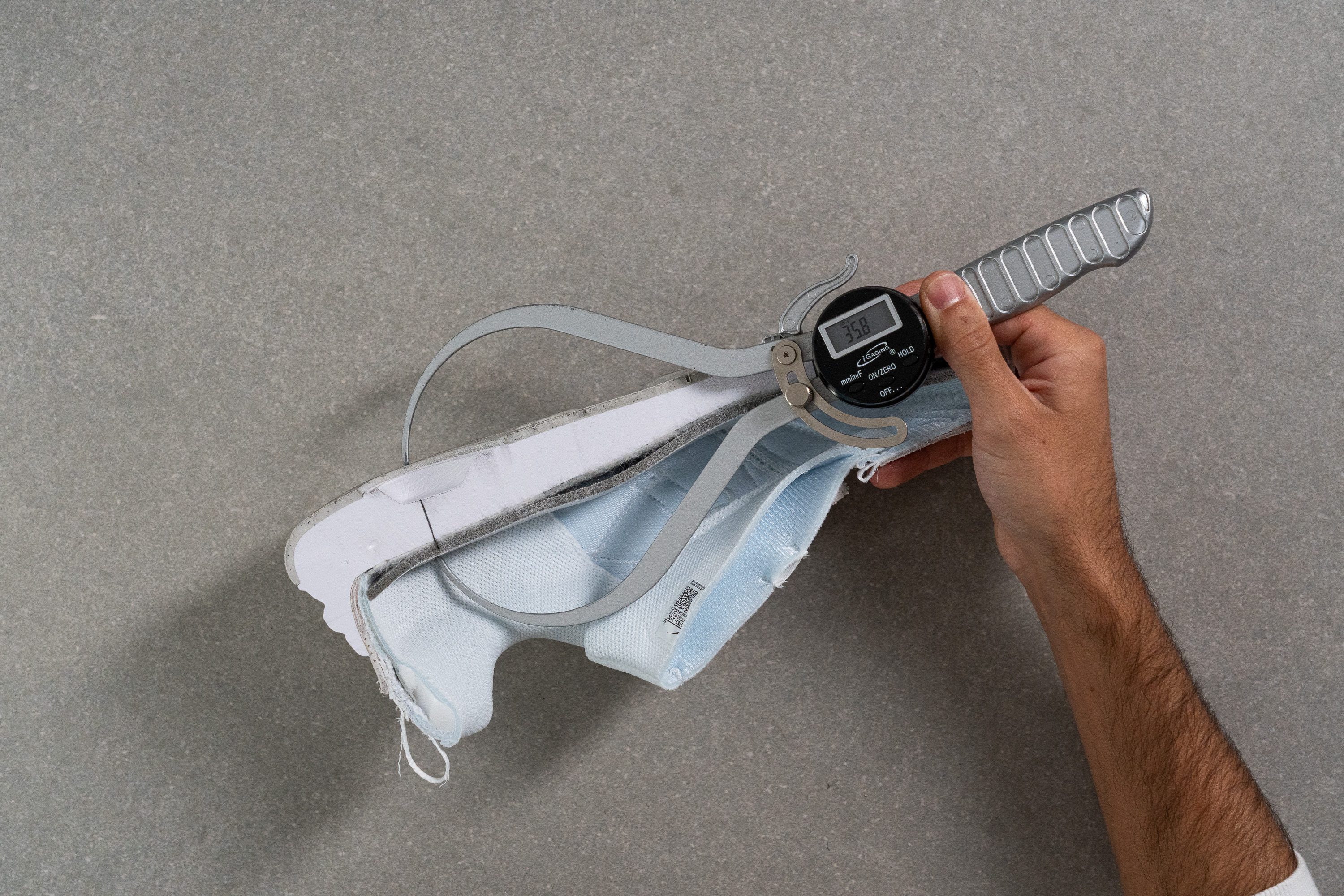
| Tech Hera | 35.8 mm |
| Average | 30.7 mm |
Forefoot stack
The forefoot stack is also higher than average at 24.7 mm. If you want to feel slightly taller, this pair sounds like a great option!
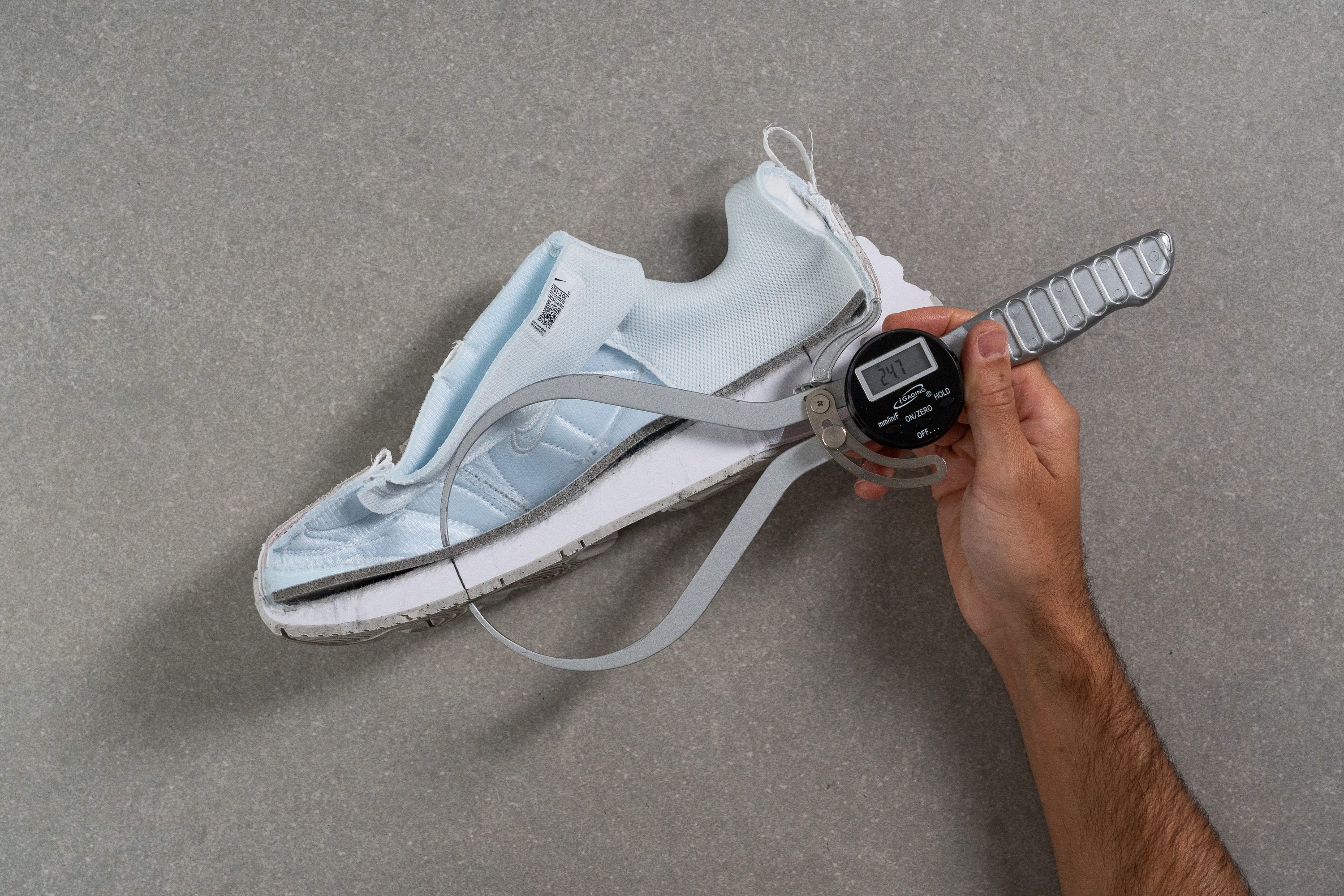
| Tech Hera | 24.7 mm |
| Average | 19.5 mm |
Drop
Even though both stack heights are pretty high, there's a big difference between them, which leaves us with a high drop of 11.1 mm. This is pretty much average, and it only indicates that the muscles of your hips and knees will work slightly harder than the ones on your ankles and calves.
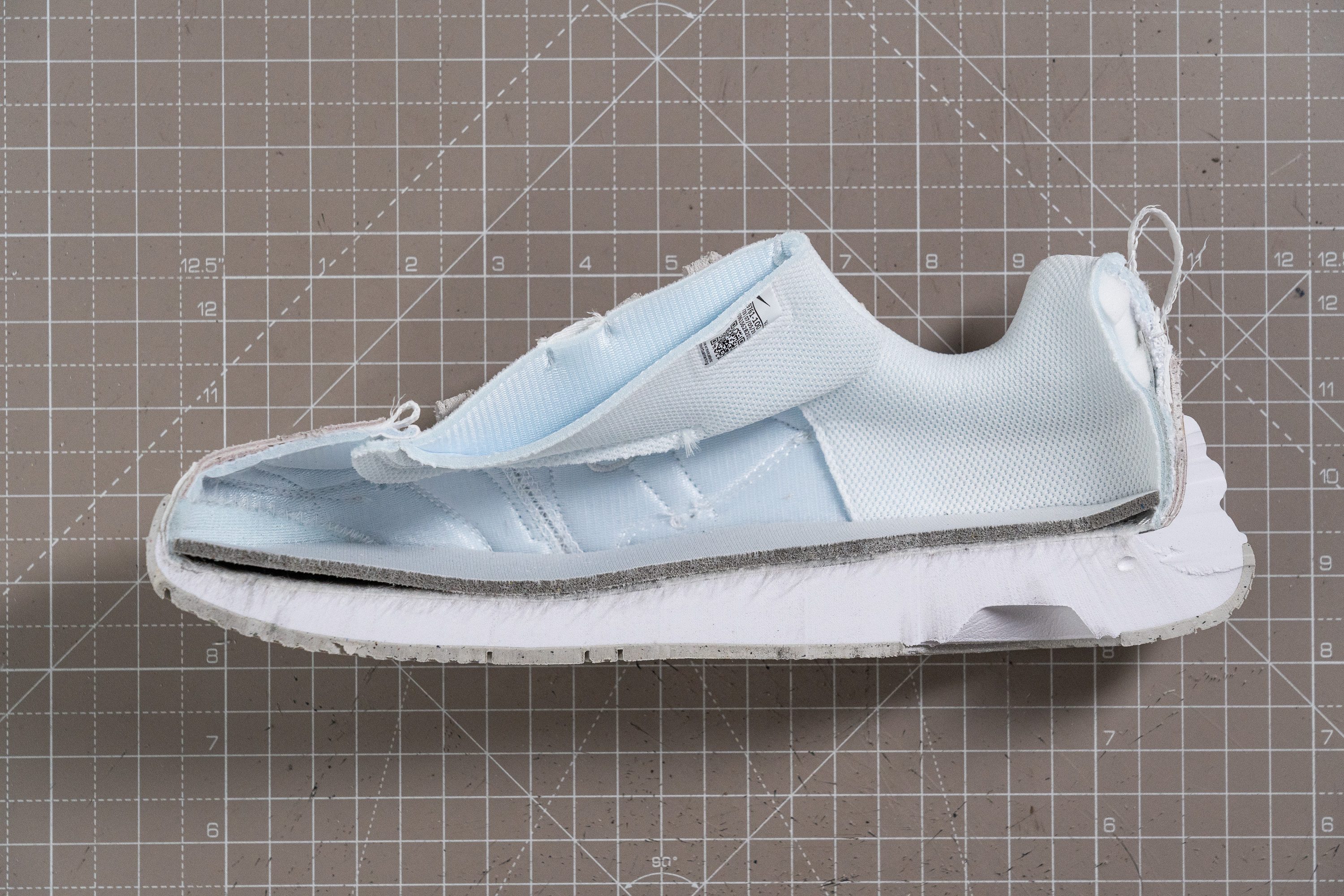
| Tech Hera | 11.1 mm |
| Average | 11.2 mm |
Midsole softness
During our wear tests, we felt the Tech Hera had that cloud-like comfort of the Hokas. It all made sense when we took it to our lab and our durometer returned 25.0 HA, indicating this shoe's foam is softer than average.
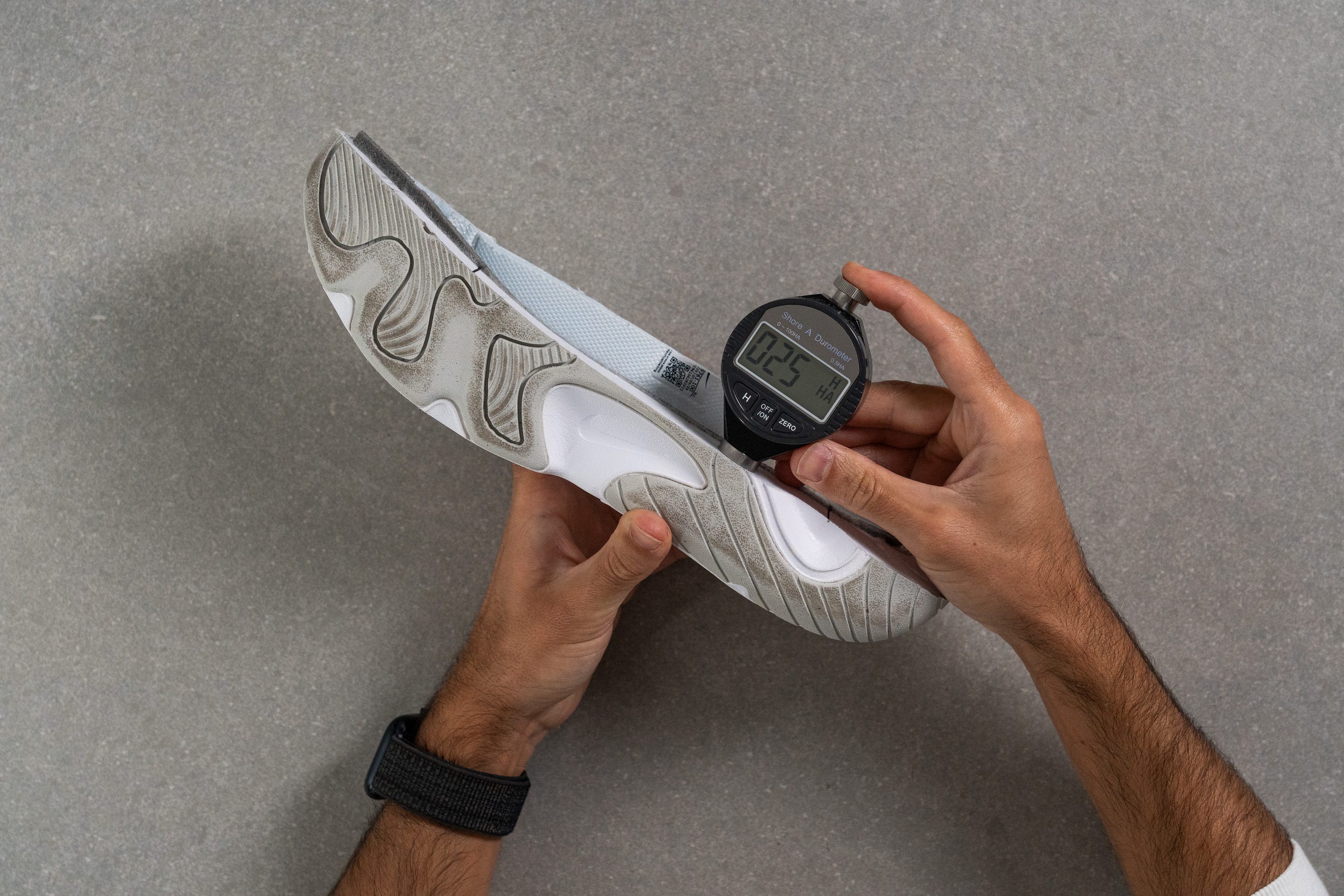
| Tech Hera | 25.0 HA |
| Average | 28.6 HA |
Size and fit
Size
Nike Tech Hera fits slightly small (77 votes).
Internal length
| Tech Hera | 272.0 mm |
| Average | 272.3 mm |
Width / Fit
UpdatedThe Nike Tech Hera is just as spacious inside as it is chunky on the outside and we have a gel mold of the shoe's interiors to prove it.
With a caliper reading of 96.4 mm in the widest part, it is one of the roomiest Nike sneakers we've tested!
Our medium-sized feet enjoyed the extra space, especially for all-day wear on a warm day when our toes start to swell.
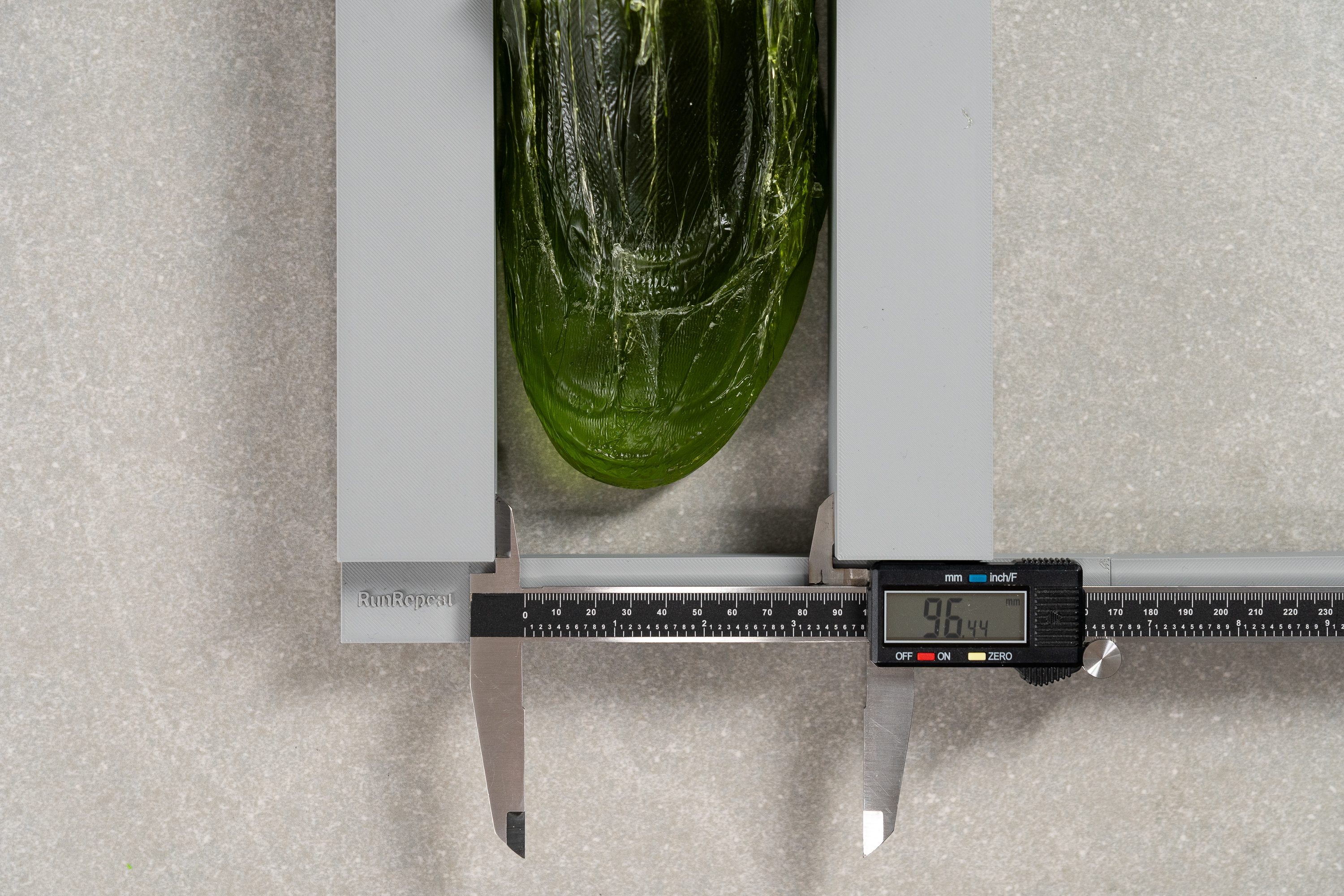
| Tech Hera | 96.4 mm |
| Average | 92.5 mm |
Toebox width
UpdatedEven though the shoe's big-toe area showed a narrower reading of 67.6 mm, this slight taper angle didn't seem to affect the roomy fit.
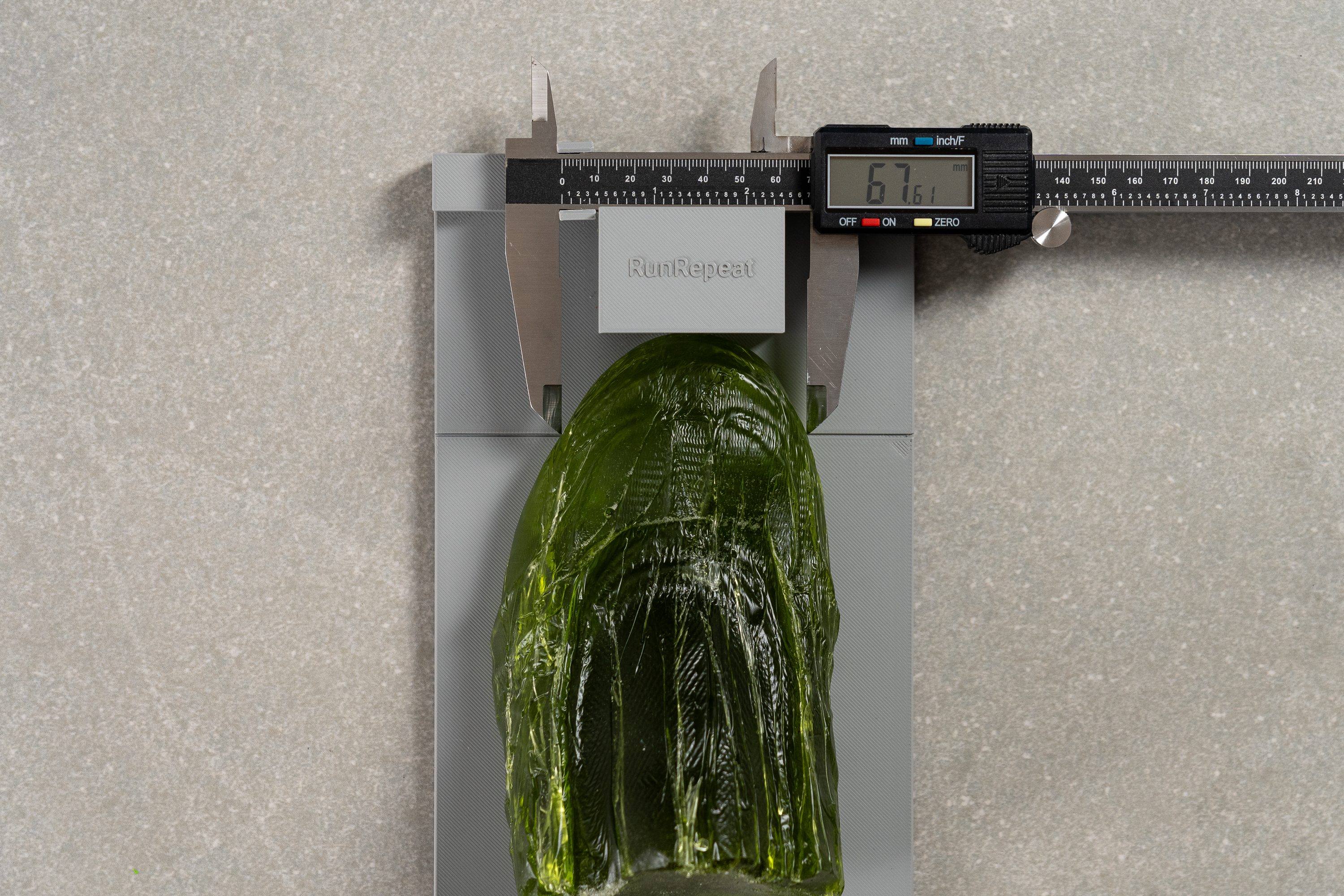
| Tech Hera | 67.6 mm |
| Average | 68.9 mm |
Toebox height
An ample toebox height of 27.9 mm also contributes to the accommodating in-shoe experience.
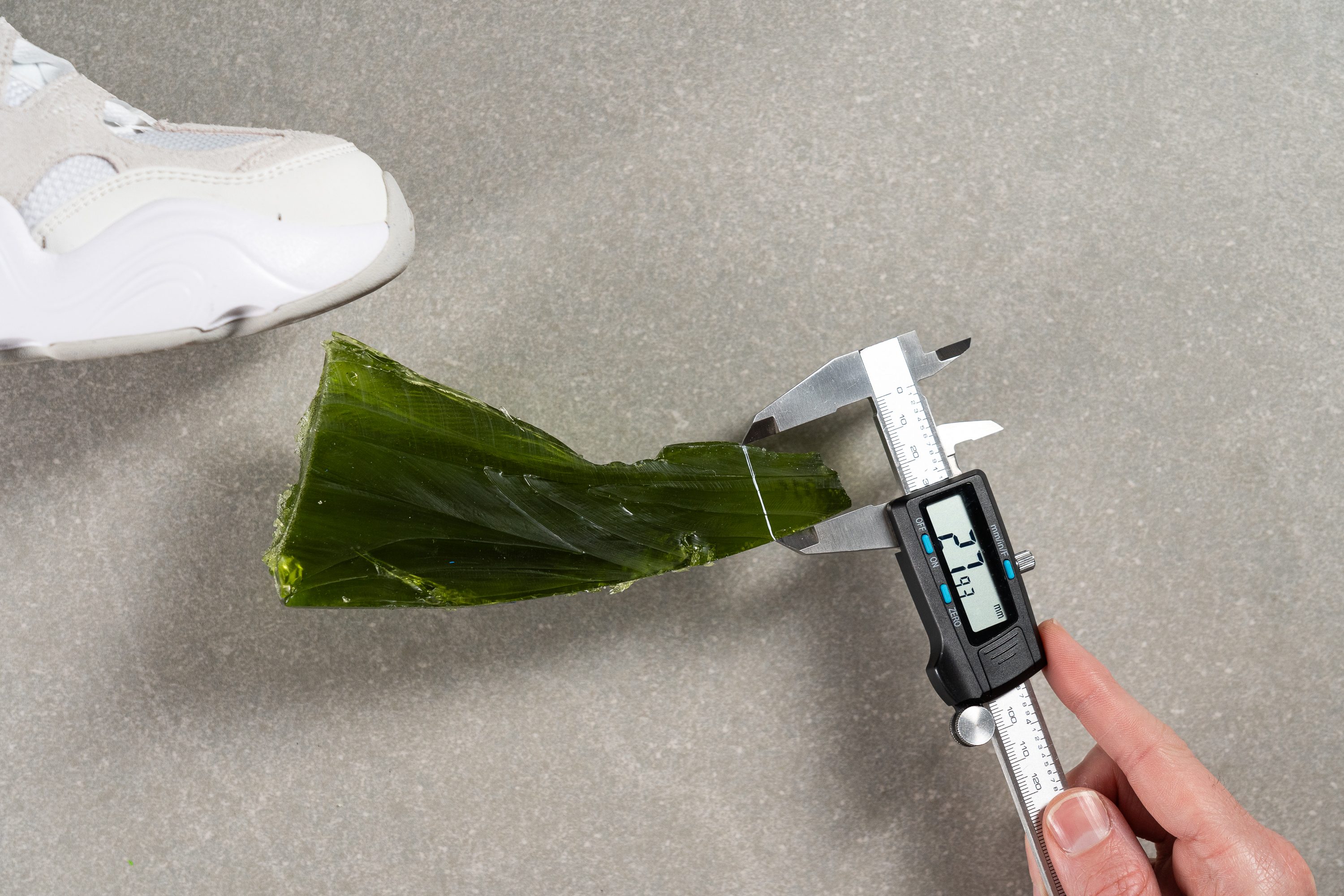
| Tech Hera | 27.9 mm |
| Average | 27.8 mm |
Flexibility / Stiffness
When we took the Tech Hera to our lab and bent it to 90 degrees, our force gauge marked 29.1N. This result is higher than average, which means this shoe is not as flexible (longitudinally) as most sneakers. But that's something we expected from the chunky build of this pair, to be honest. Even though it takes them a while to warm up, once we wore these sneakers for a while, they started bending alongside our feet more and more easily, which translated into our overall comfort levelling up.
This test follows an older methodology, which is why you don't see recently tested shoes in the chart. Results from different methodologies can not be compared.
| Tech Hera | 29.1N |
| Average | 23.3N |
Weight
The chunky vibe of this pair might be tricky at first sight, but it didn't feel heavy on foot. At 13.4 oz/381.0g, our scale confirmed it's lighter than average, which is great news for anyone who's thinking about wearing the Tech Hera all day, as their feet won't get as tired.
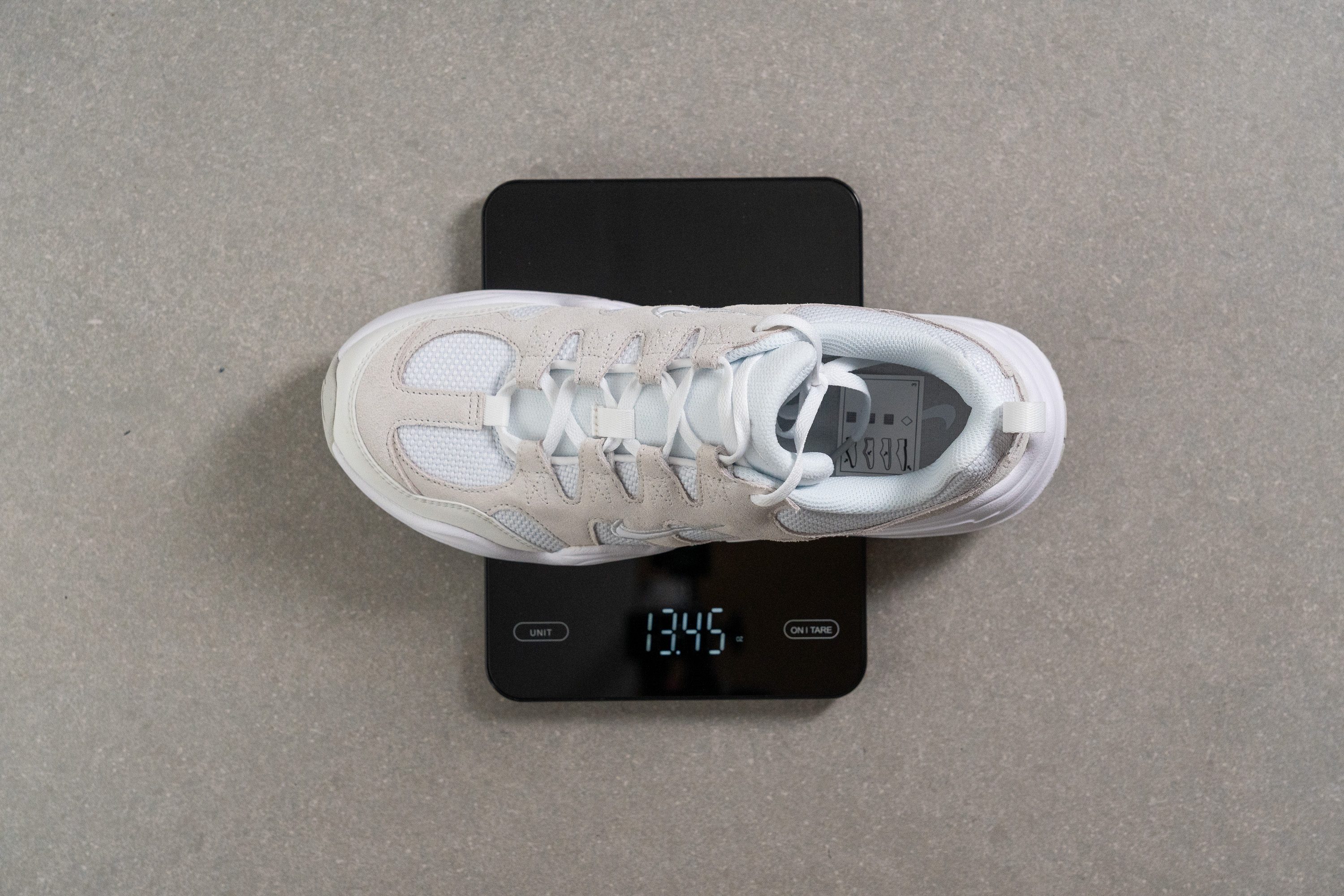
| Tech Hera | 13.4 oz (381g) |
| Average | 13.8 oz (390g) |
Breathability
On another episode of why appearances can be deceptive, the Tech Hera technically looks like it would let some air come in and out, but we were totally wrong.
Not even our LED light helped us see a single ventilation hole. And why's that? Well, because there are none!
And things got even worse on our smoke test. We even had to check if the machine was working properly, as this Nike didn't let a single breath of air out. After comparing its terrible performance with the ASICS Gel NYC's, which scored a well-deserved 5/5 on this same test, we're even more sure of the 1/5 we gave the Tech Hera on breathability.
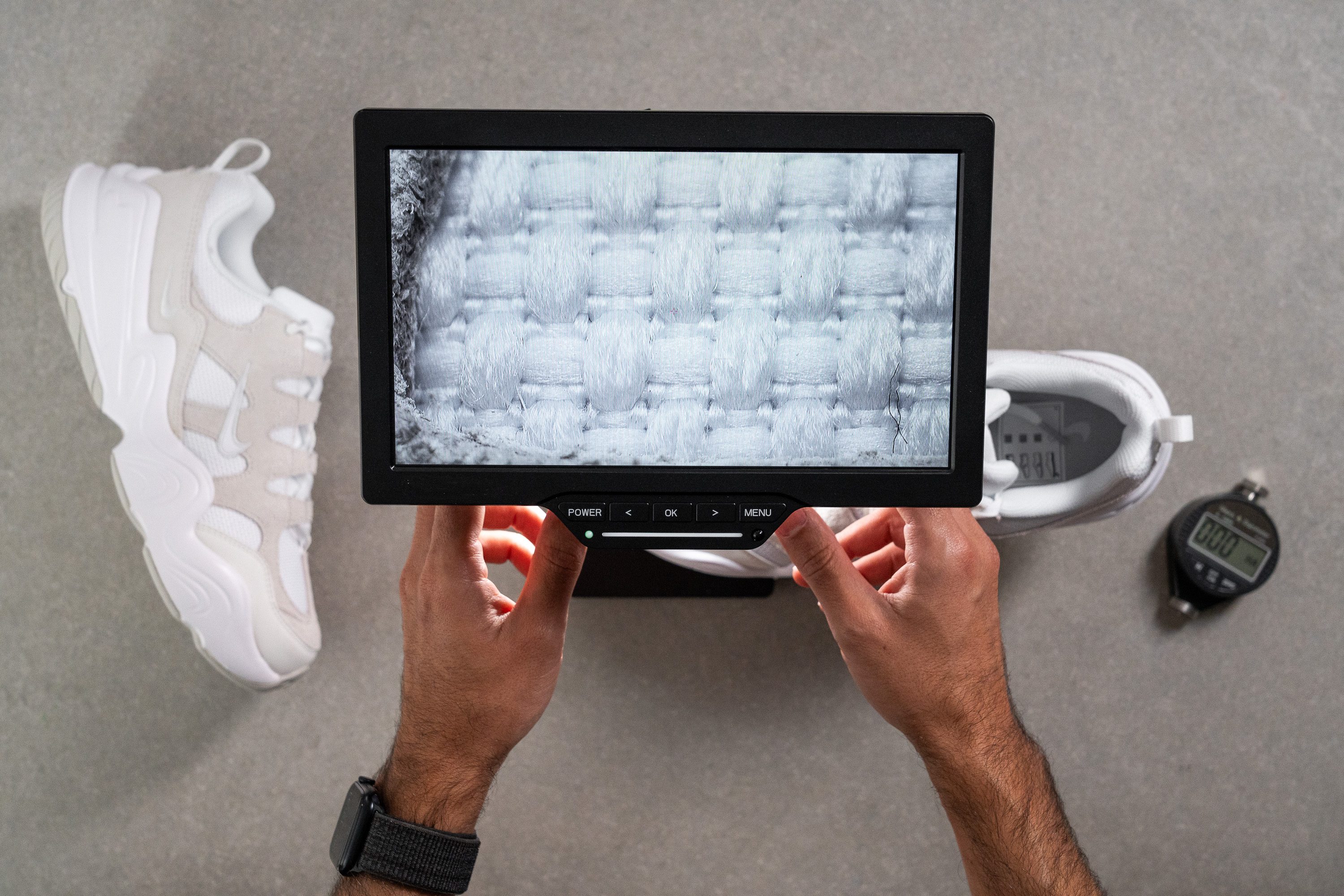
Our microscope shows us why this shoe's solid upper didn't favor airflow at all. If you don't want to end up with sweaty feet, forgetting about wearing this Nike pair in the summer might be for the best.
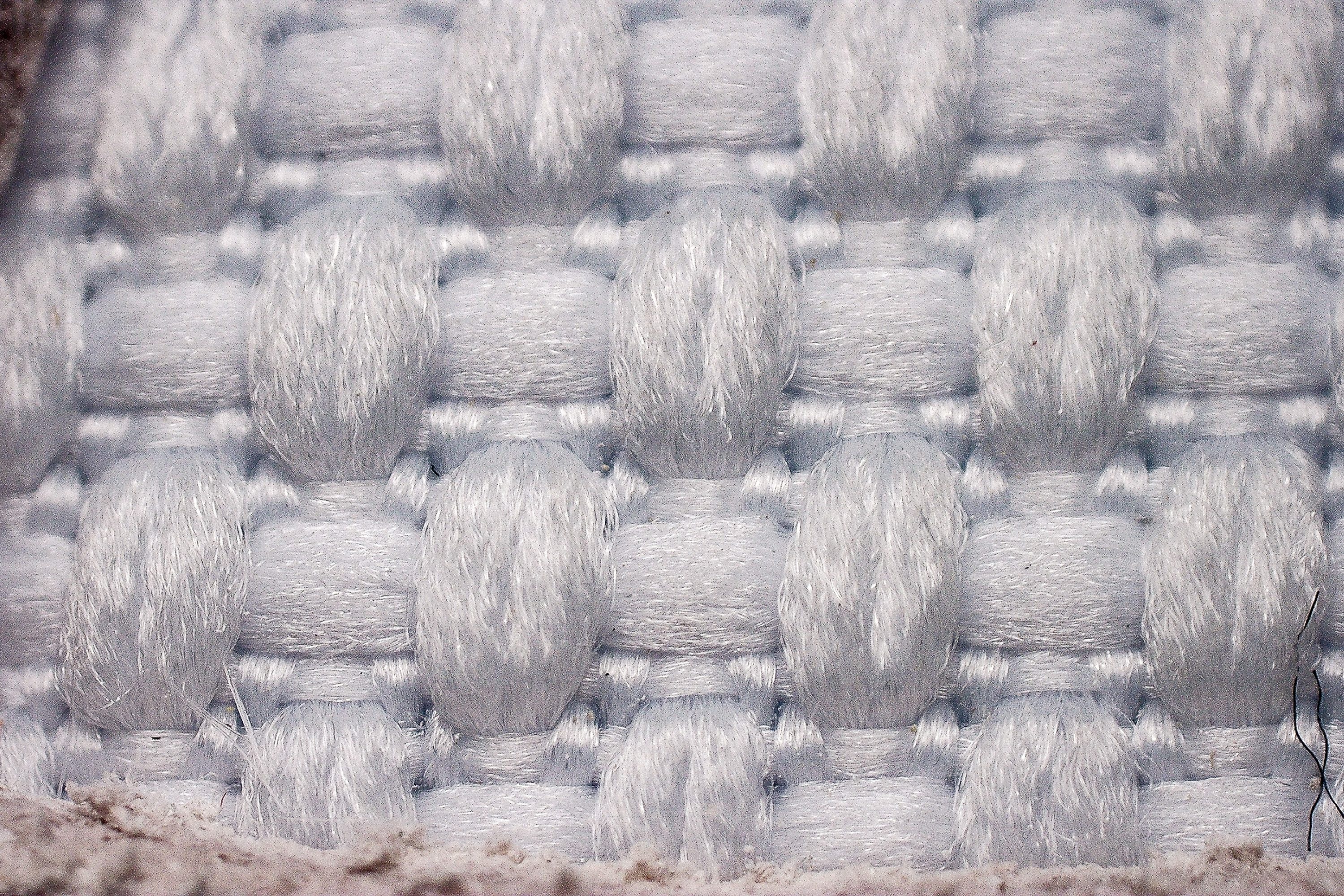
| Tech Hera | 1 |
| Average | 3 |
Stability
Lateral stability test
The running heart of this Nike pair started beating once again during our lateral stability test. Even though we don't believe this shoe is made to play sports with, its foot-hugging structure made us feel pretty confident when we were walking around town, as it stopped our ankles from overextending themselves.
Torsional rigidity
The high lateral walls of these sneakers didn't even give our fingers a chance. Twisting the Tech Hera was just mission impossible, which earned it a perfect 5/5 on our torsional rigidity test. To us, this translated into a break-in period. It wasn't too bad, but this shoe needs to warm up to you before offering all its comfort.
| Tech Hera | 5 |
| Average | 3.6 |
Heel counter stiffness
We were really thankful that the heel wasn't as rigid. Even though the top part bowed down easily, the lateral rubberized wall surrounding the bottom gave this area some extra structure. Scoring a well-deserved 3/5 on our stiffness test, it offered us a nice mix of support and comfort during our walks.
| Tech Hera | 3 |
| Average | 3.2 |
Midsole width - forefoot
As soon as we turned this shoe upside down, we were welcomed by a fairly wide midsole. At the forefoot, our caliper returned 114.0 mm, which is way higher than average. This translated into a more stable ride, as our feet had more space to land comfortably after every step.
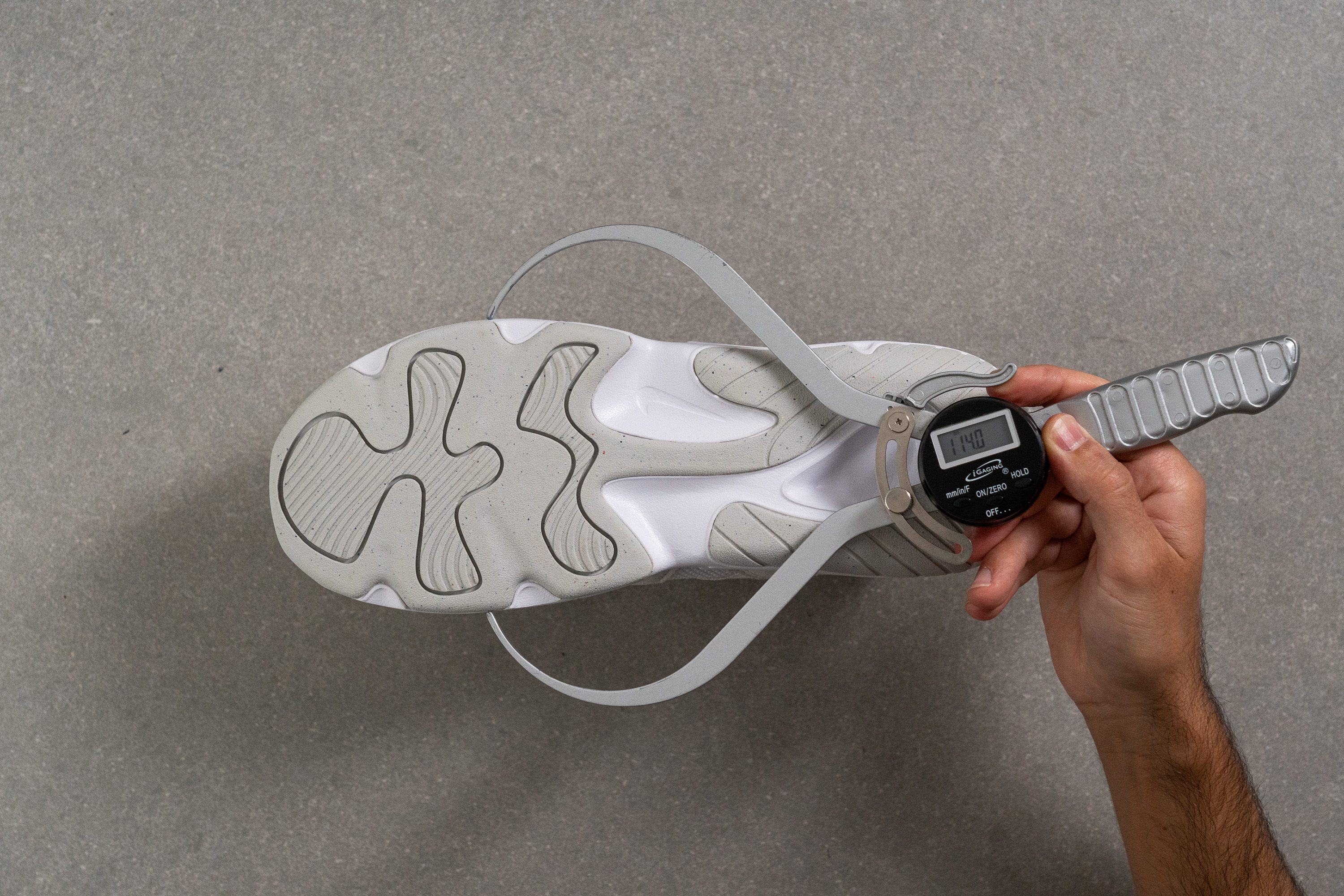
| Tech Hera | 114.0 mm |
| Average | 108.9 mm |
Midsole width - heel
We can happily say the midsole at the heel follows its counterpart's example. At 92.2 mm, it's also on the wider side, adding some extra points on support once again.
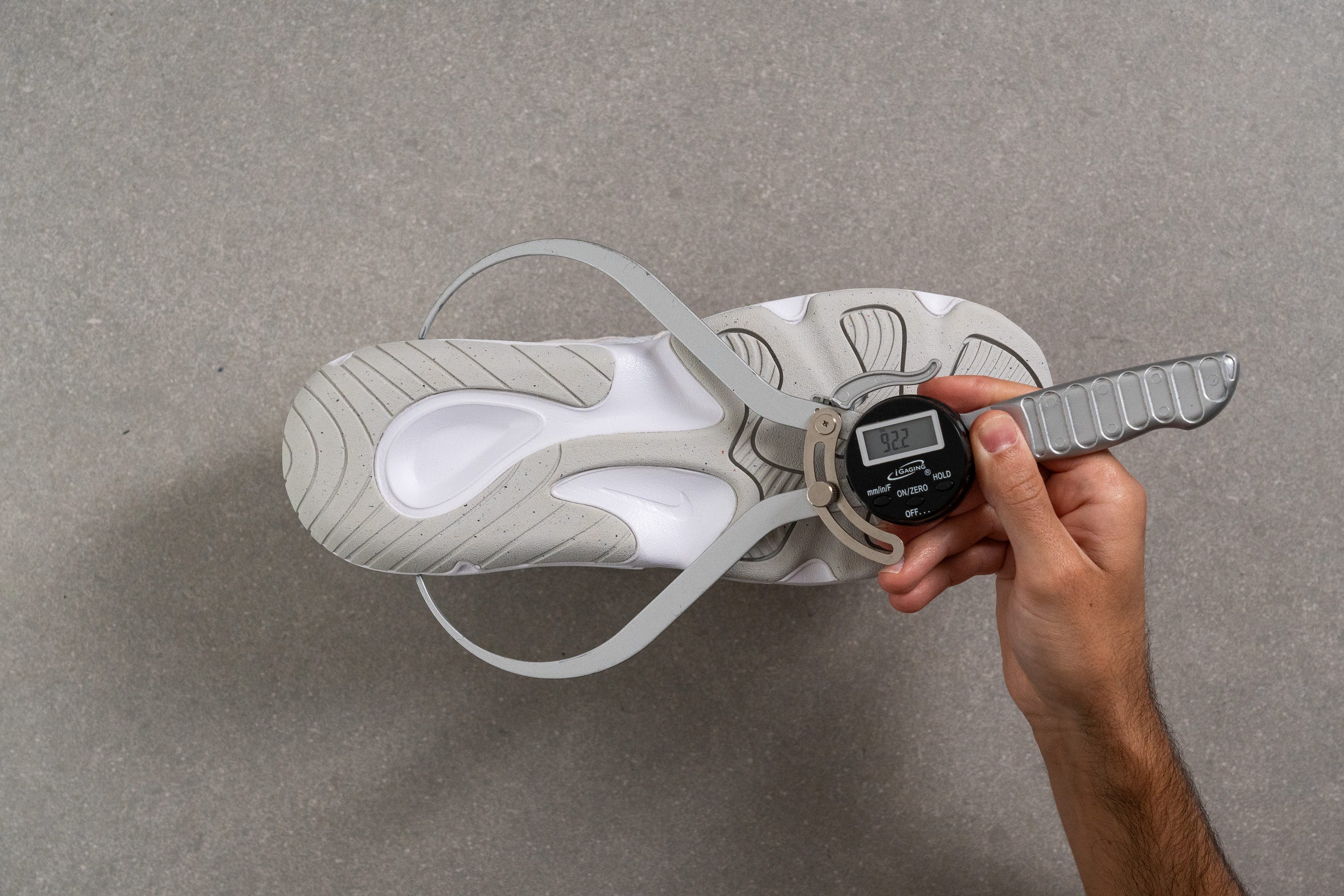
| Tech Hera | 92.2 mm |
| Average | 84.0 mm |
Durability
Leather/Suede quality
As expected from a Nike pair at this price, it features authentic suede. As you can see in the video below, we didn't have to deal with a massive flame or some smelly melted plastic.
| Tech Hera | Real suede |
Toebox durability
After the terrible results on breathability, we expected the Tech Hera to offer great durability. And it did! Reinforcing once again the "low breathability = high durability" equation
At 5K RPM and with the typical 3.2N of force, the Dremel tried its best to destroy this Nike's toebox, but it was futile. The flying white materials were scary at first, but when we saw the results, we realized this shoe was almost as good as new. The mere scratch it got earned it a solid 5/5 on our toebox durability test.
| Tech Hera | 5 |
| Average | 3.7 |
Heel padding durability
But the story changed completely at the back. The heel padding showed awful durability, and the same 5K RPM and 3.2N of force were enough for the tool to destroy it in the blink of an eye.
The flying white materials were now a bad omen, and the heel padding didn't stand a chance against our Dremel. After seeing this horrifying performance, we decided to give the Tech Hera a mere 1/5. So don't expect much of a lifespan from this area if you overuse the shoe.
| Tech Hera | 1 |
| Average | 3.2 |
Outsole hardness
Our durometer returned 88.9 HC when we measured this shoe's outsole hardness. It's an average result, which indicates the Tech Hera should offer a healthy mix of durability and grip.
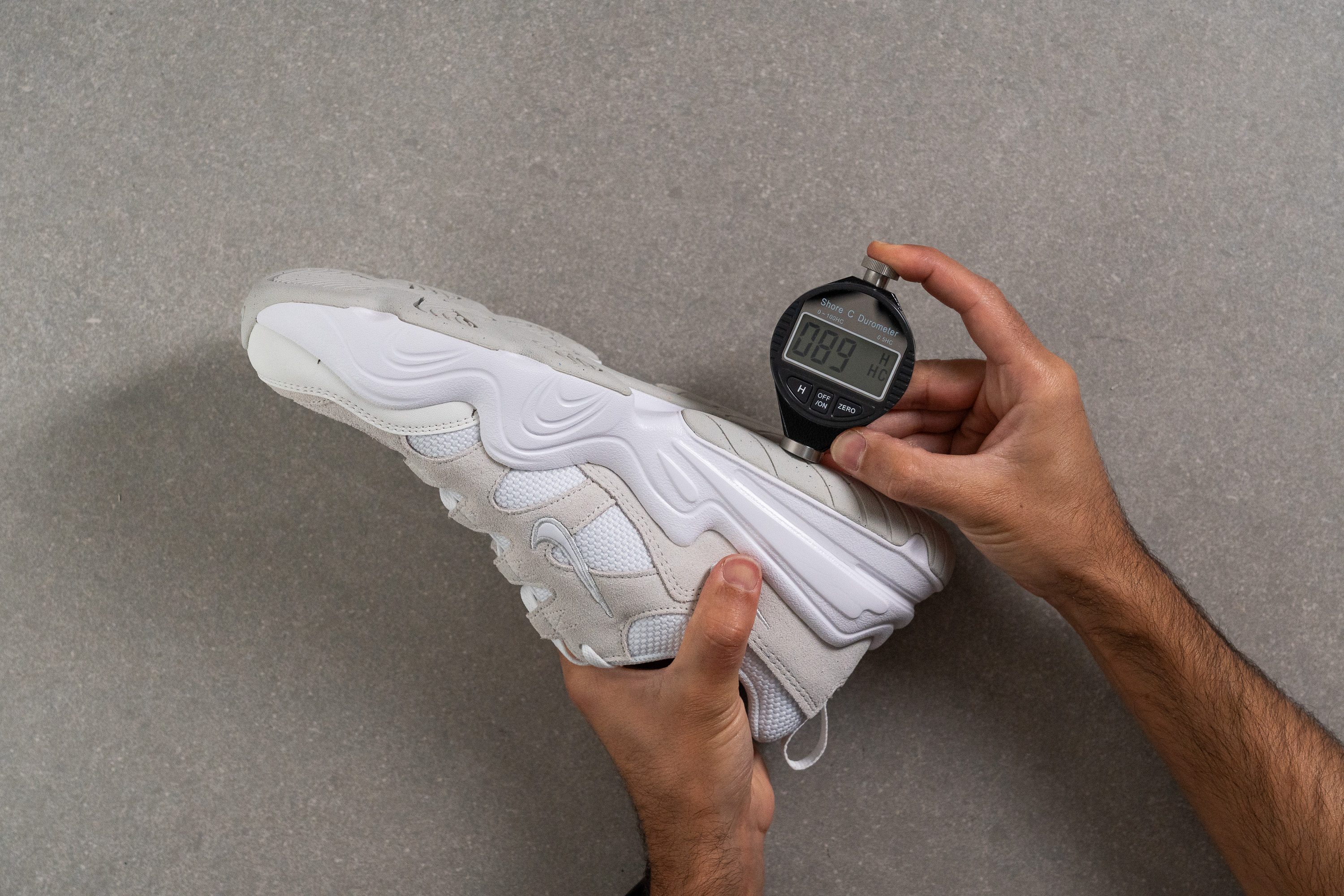
| Tech Hera | 88.9 HC |
| Average | 85.7 HC |
Outsole durability
On our last Dremel test, the tool comes back stronger, at 10 K RPM but with the same 3.2N of force. And despite the previous hopeful durometer reading, we were welcomed by yet another disappointing performance on durability from the Tech Hera.
The rubber mountain building up like grated cheese right next to the tool almost spoke louder than our tread gauge, which returned 1.6 mm when we measured the depth of the damage. This means these sneakers will be worn out sooner than others, so they might not be the best choice if you're looking for a trustworthy daily beater.
| Tech Hera | 1.6 mm |
| Average | 1.1 mm |
Outsole thickness
We thought Nike might have gone for a thicker piece of rubber to compensate for the poor durability of this shoe's outsole, but we were wrong. Our caliper marked 4.4 mm, which is lower than average; but we can understand the brand's decision, as it most likely wanted to save up some weight.
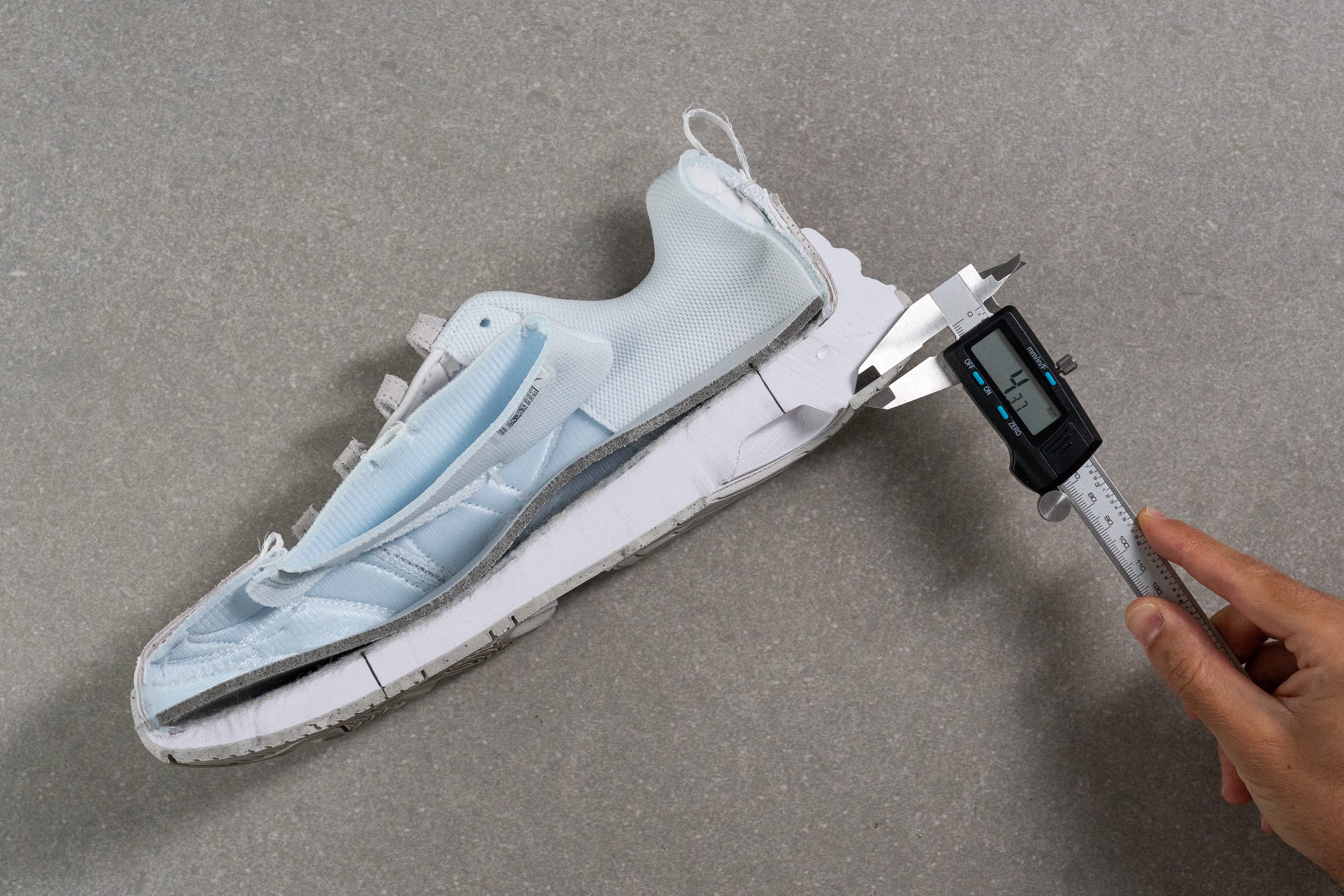
| Tech Hera | 4.4 mm |
| Average | 5.3 mm |
Misc
Insole thickness
As this Nike pair already has a soft and cushy midsole, the brand decided not to go for a massive insole. At 3.8 mm, our caliper demonstrated Nike decided to save some weight here, as the comfort levels of the Tech Hera were already pretty high.
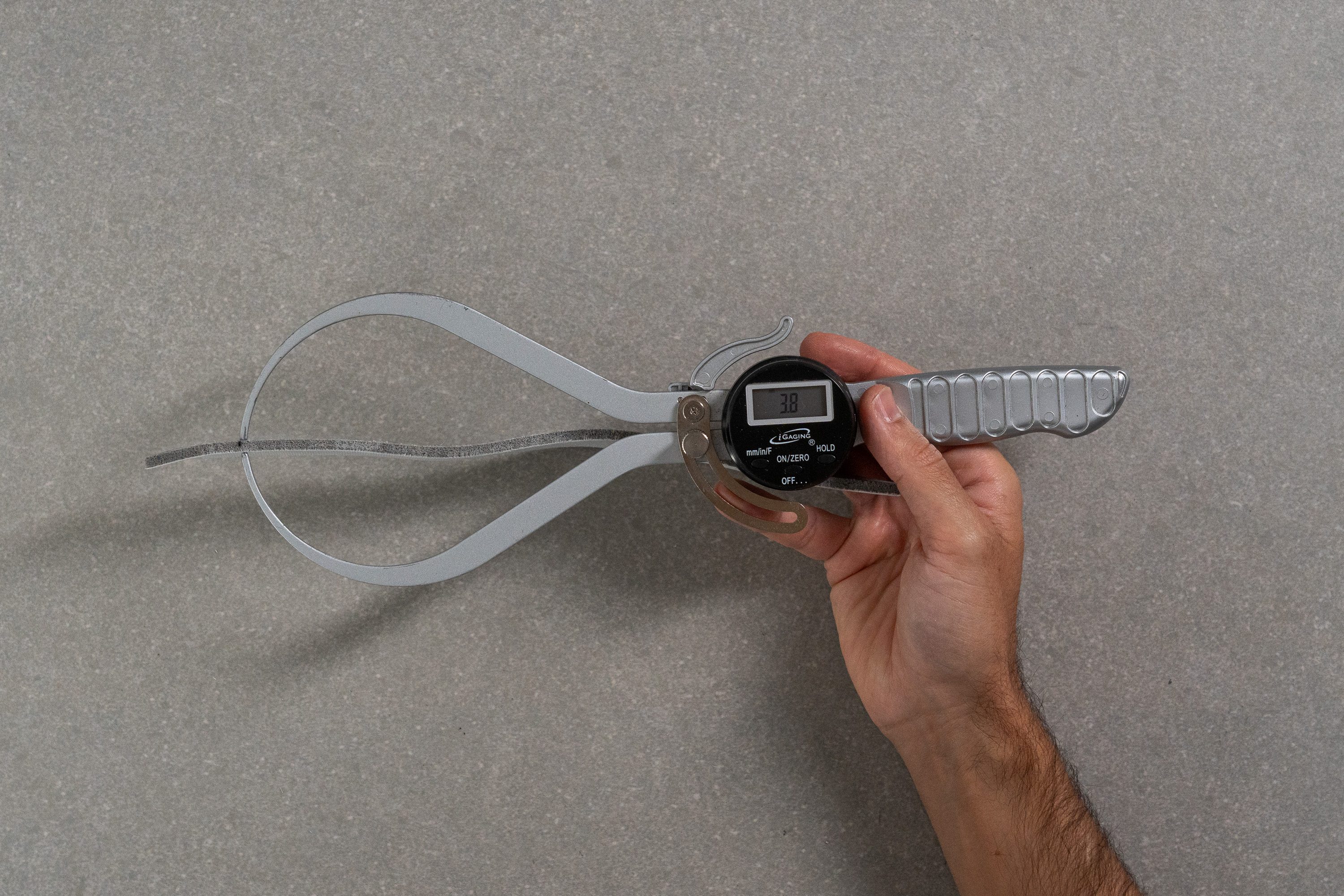
| Tech Hera | 3.8 mm |
| Average | 5.1 mm |
Removable insole
We're huge fans of removable insoles, so we always appreciate it when a shoe features one.
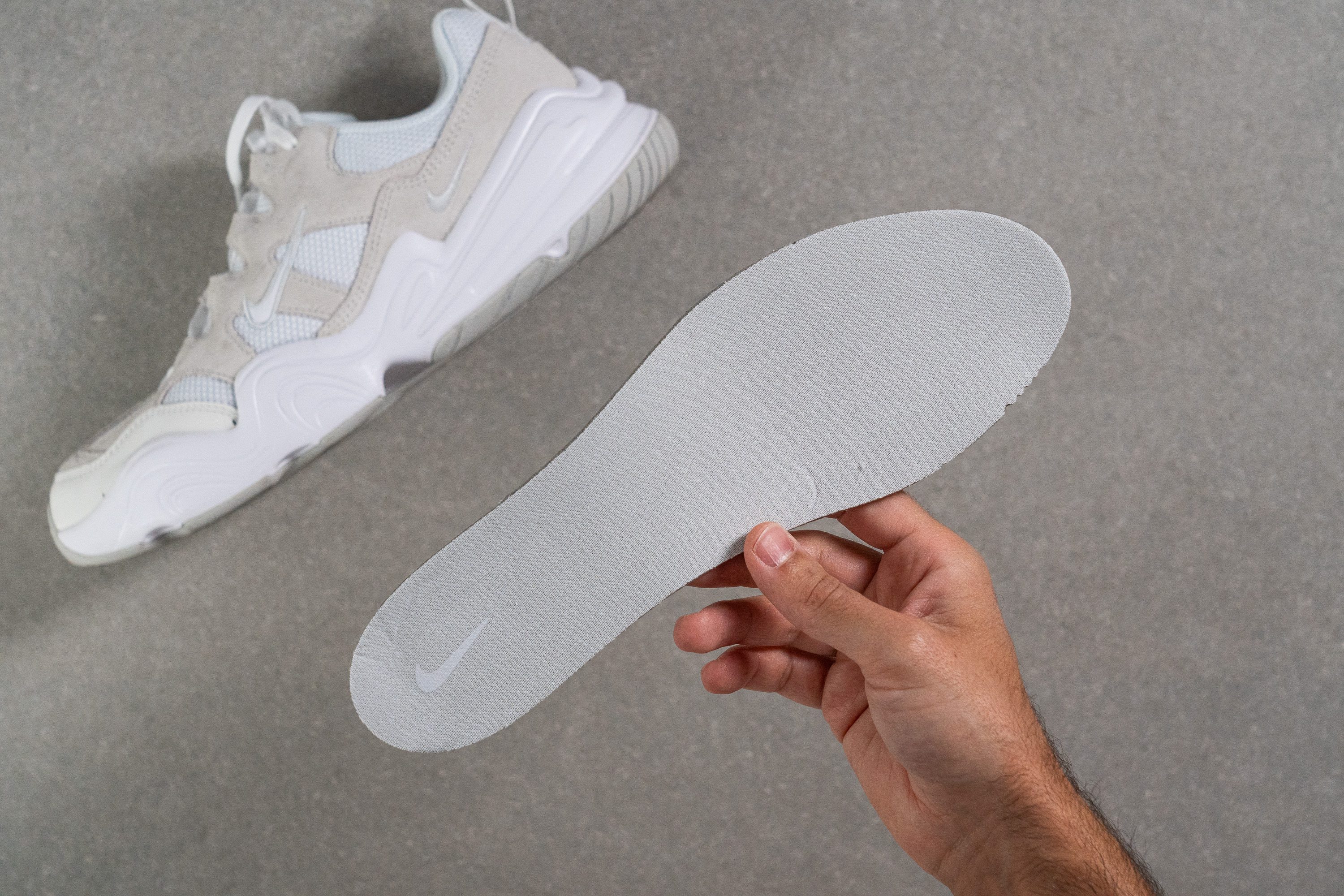
If you want or need to change the Nike Tech Hera's to use your own orthotics, you won't have any problems. Nevertheless, please keep in mind the inner volume of this pair is limited, so if you add a thicker insole, it might ruin your experience (and add some unpleasant extra weight!).
| Tech Hera | Yes |
Reflective elements
Despite its steeper price, the Tech Hera doesn't feature any reflective elements.
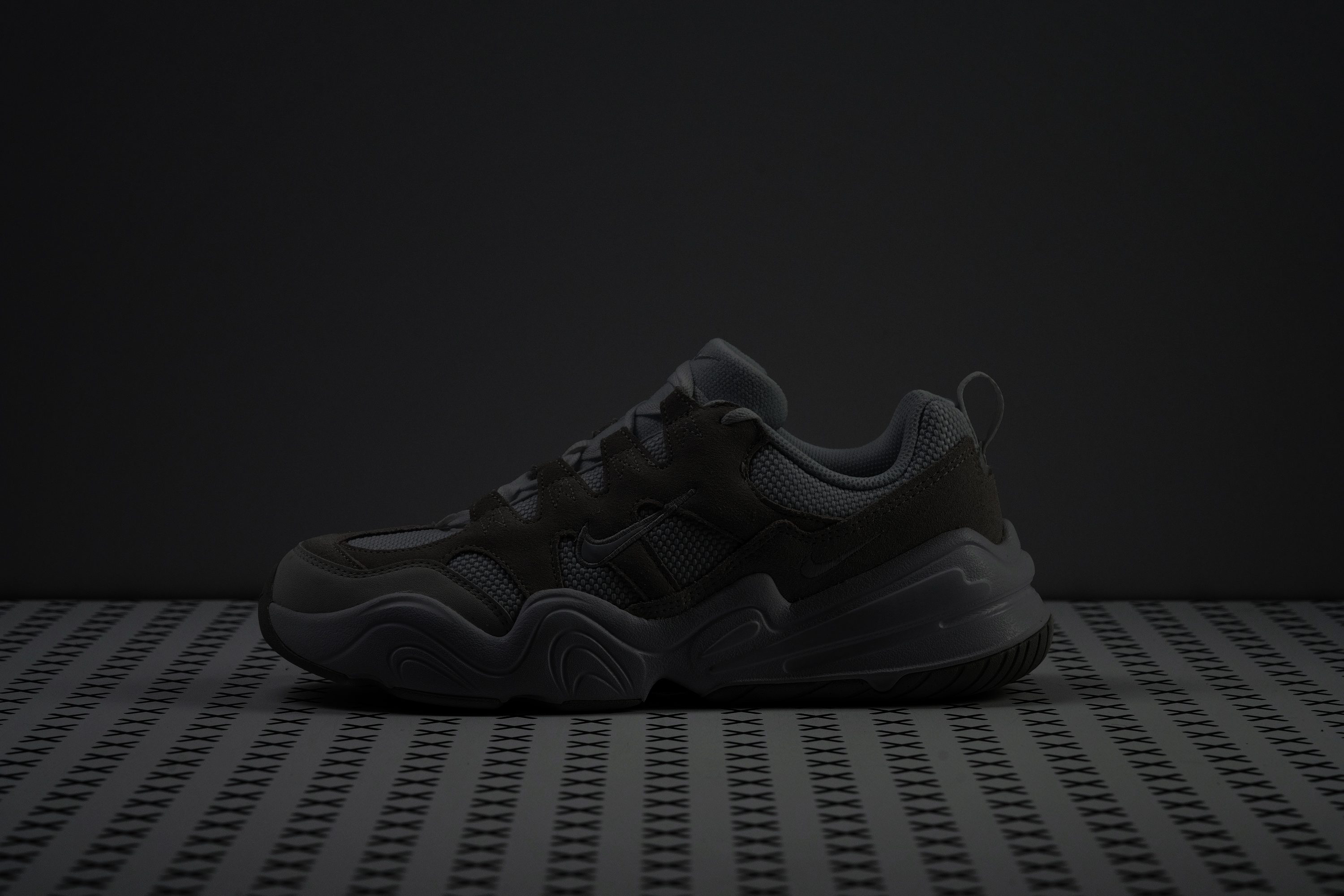
| Tech Hera | No |
Tongue padding
Our caliper returned 6.0 mm when we measured this shoe's tongue padding. This score is lower than average, but we found it ideal. It felt comfortable, protected us from any kind of lace bite, and reduced this pair's overall weight. What else could we ask for?
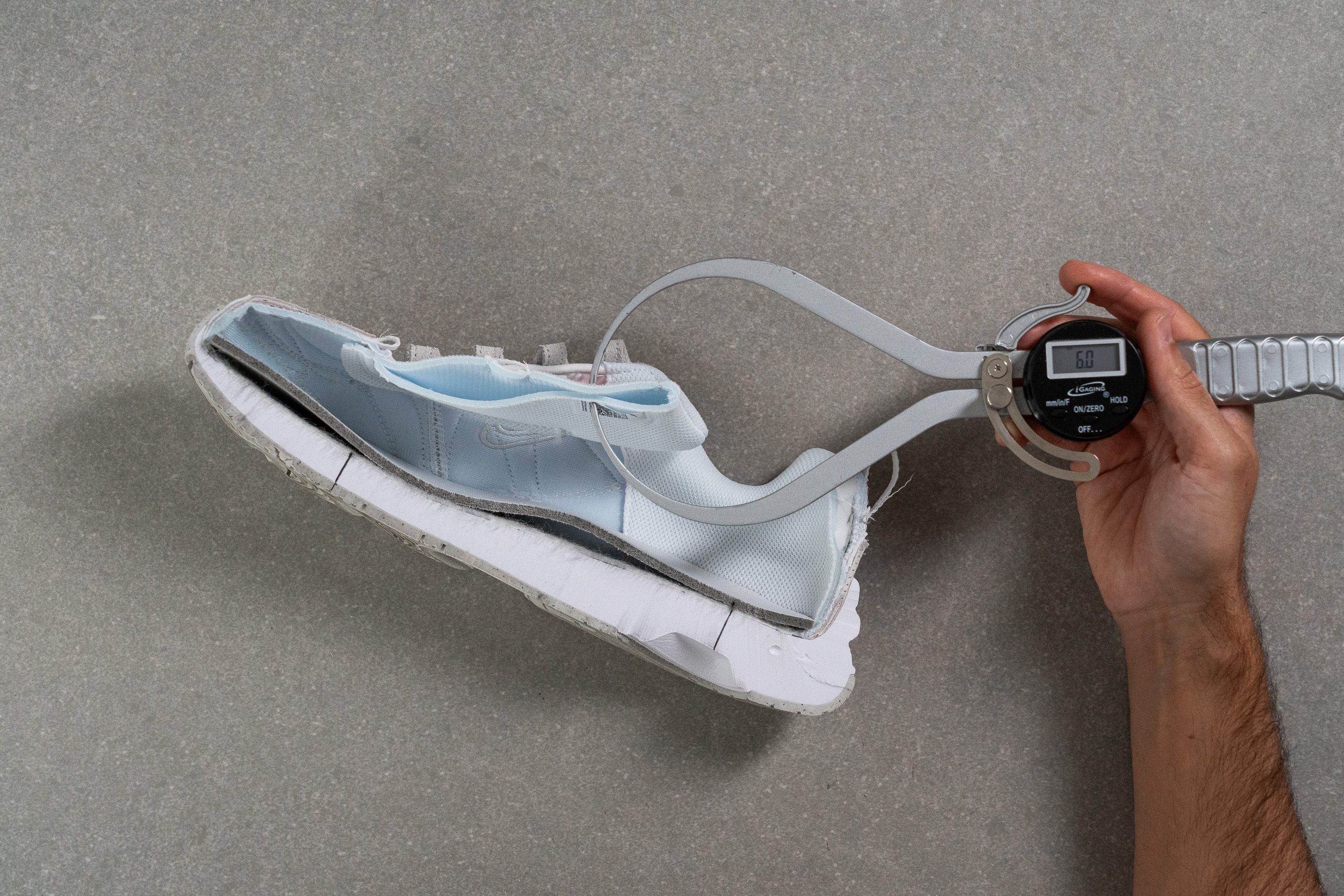
| Tech Hera | 6.0 mm |
| Average | 9.6 mm |
Tongue: gusset type

Heel tab
Apart from being functional, we found these sneakers' finger loop really cute. Even though the Tech Hera doesn't have a gusseted tongue, which means that putting the shoe on and off is pretty easy, we always appreciate some extra help.
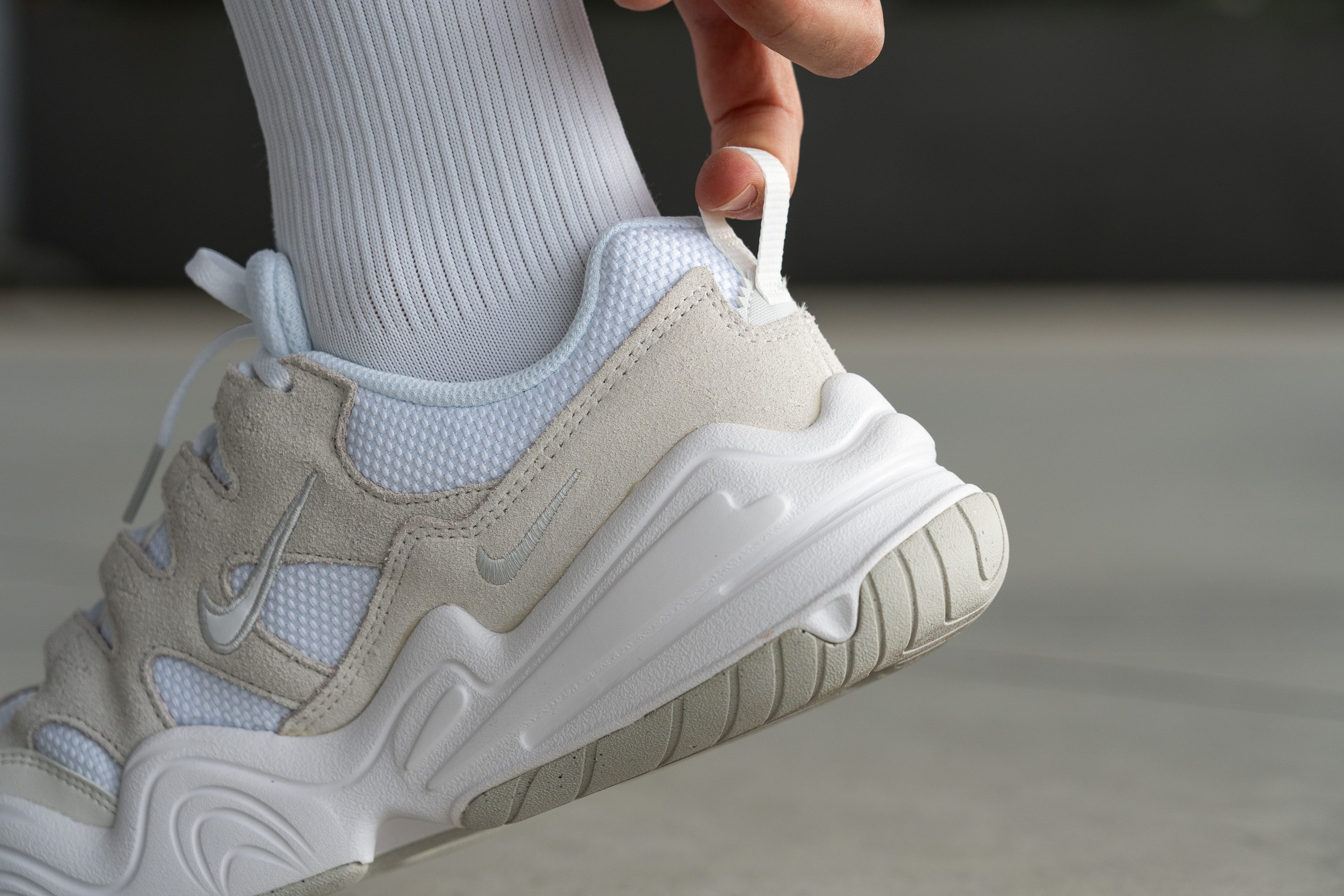
| Tech Hera | Finger loop |
Price
We've got mixed feelings about the Tech Hera's price. On the one hand, its durable and high-quality upper materials, alongside its comfortable midsole, make it a great companion for your daily activities. But, on the other hand, its poor breathability and outsole durability make us think it's not suited for constant use. We understand its aesthetics earn it a fair amount of points, but the P-6000 and the V2K Run are two trendy options from Nike that offer great ventilation and durability for a more affordable price.
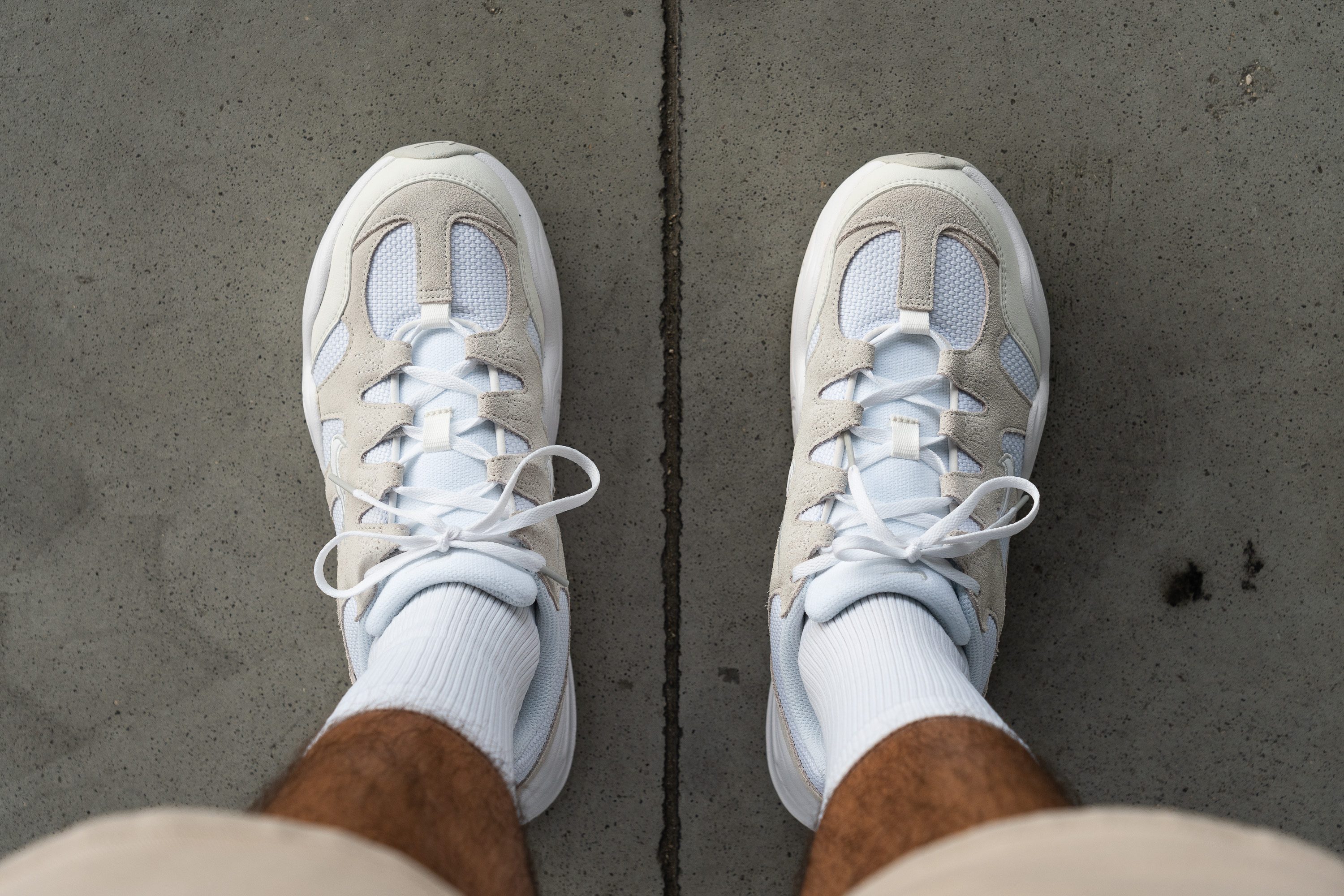
| Tech Hera | $160 |
| Average | $123 |

